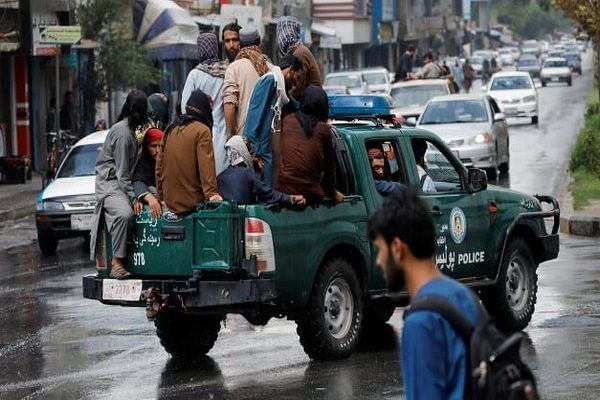Beijing has promised the Taliban it would extend the China Pakistan Economic Corridor to Afghanistan under the Belt and Road Initiative. Chinese foreign minister Qin Gang met his Pakistani counterpart Bilawal Bhutto Zardari and Afghan Interim Government Amir Khan Muttaqi in Islamabad – and pledged to bring the fruits of BRI to Kabul.
Beijing’s plan to connect CPEC with Afghanistan will bring more Chinese security forces to the Khunjerab Pass in the Pamir Knot–shrinking India’s strategic space in South Asia.
Khunjerab Pass connects Pakistan’s Karakoram highway with the southwestern border of China. ‘Khunjerab’ means ‘blood-stained passage’ in Tajik. The pass is built on the Pakistan-occupied Kashmir, which India considers part of its territory.
China hasn’t just deployed the People’s Liberation Army (PLA) forces to Eastern Ladakh – with India in mind – but the forces deployed in the immediate neighbourhood of Aksai Chin are there to defend Beijing’s economic interests – including CPEC.
“The three parties reaffirmed their support for Afghanistan in realizing its full potential as a regional connectivity hub,” said the Fifth China-Afghanistan-Pakistan Foreign Ministers’ Dialogue.
This trilateral mechanism was first introduced in 2017. Pakistan has an equally significant interest in stabilising Afghanistan’s economy to sell Beijing a new regional bargain of economic connectivity.
Several experts are sceptical about Beijing’s ability to stabilise Taliban-run Afghanistan and extract large reserves of minerals – a fair assessment given the US’s experience in the country.
Also read: China is in a middle-income trap. And it can’t escape like Japan, South Korea, Singapore
India has other concerns
Indian officials have downplayed the potential impact of these efforts in Afghanistan, making the same argument as some experts have elsewhere.
“This is the wrong time to invest in CPEC in Afghanistan. China wants to build large-scale ports, roads, container depots etc in Afghanistan, but that would not be possible. The Afghans are not interested,” an unnamed Indian official told News18 network. “China wants assurances on security before proceeding into Afghanistan. Neither Kabul or Islamabad can give that assurance,” the official added.
For India, there are other immediate concerns, linked to its border dispute in Ladakh. Beijing will only use the connectivity to further securitise the region immediately north of Eastern Ladakh, which connects China with Pakistan.
“The three sides stressed that they will promote ‘hard connectivity’ of infrastructure and ‘soft connectivity’ of rules and standards, and further explore measures to facilitate the movement of people and trade activities. The three sides decided to upgrade the level of re-export trade at Gwadar port,” said the joint statement of the trilateral meeting.
However, the project that Beijing will now promote to bring the BRI to Afghanistan involves constructing ports and depots along the Jalalabad-Kabul Road, which Beijing assisted in building.
“China supports the extension of the China-Pakistan Economic Corridor and the China-Central Asia-West Asia Economic Corridor to Afghanistan, and is ready to promote synergy between the Belt and Road Initiative and the development strategies of Afghanistan, and support the smooth operation of the China-Afghanistan freight trains services, to help Afghanistan better integrate into the regional economic integration process,” said a statement issued after a meeting of China and Central Asian countries in April 2022 under the Tunxi Initiative.
These connectivity efforts are being made to allow Chinese companies to exploit Kabul’s riches.
Recently, Afghanistan’s Ministry of Mines and Petroleum suggested that a Chinese company named Gochin was planning to invest $10 billion to mine Lithium reserves.
The Chinese foreign ministry only obliquely confirmed the investment talks.
“China supports Chinese companies in cooperating with Afghanistan in line with market principles, and playing a constructive role in helping Afghanistan rebuild its economy and achieve self-generated and sustained development. As to the specific project you mentioned, I do not have information about it,” said foreign ministry spokesperson Wang Wenbin.
Also read: China is making national security a priority, starting with crackdown on open source data
Xi’s goals are bigger
These connectivity projects have a broader strategic goal for Xi Jinping – with a game plan in Central Asia. Xi is set to host the China-Central Asia Summit in Xi’an on 18-19 May. Securitisation of Afghanistan is just a part of Beijing’s long-term plan to move westward into Central Asia.
A Chinese government funded study suggested creating a second capital in Xinjiang, close to Urumqi, to “rebalance the country’s economic centre of gravity and create new growth opportunities”.
The risk of extending the CPEC to Afghanistan remains, as the December 2022 attack on a hostel in Kabul injuring five Chinese nationals shows. But these attacks only provide a reason for Beijing to extend its security parameter further into Afghanistan via Khunjerab pass.
“What excites the officers and soldiers is that their way of guarding the border has also undergone earth-shaking changes: the construction of ‘smart border defence’ has been accelerating, and the observation and duty facilities have been steadily upgraded. Since the company implemented information-based duty, its duty efficiency and handling capacity have improved,” said an article about PLA forces defending the Khunjerab pass.
India’s military and security establishment can’t take the posture of waiting to see Beijing fail in Afghanistan at its connectivity projects. The securitisation of the Khunjerab Pass – and the rest of the Pamir Knot – will keep the India-China border dispute alive under the behest of bringing BRI to Afghanistan.
The author is a columnist and a freelance journalist. He was previously a China media journalist at the BBC World Service. He is currently a MOFA Taiwan Fellow based in Taipei and tweets @aadilbrar. Views are personal.



